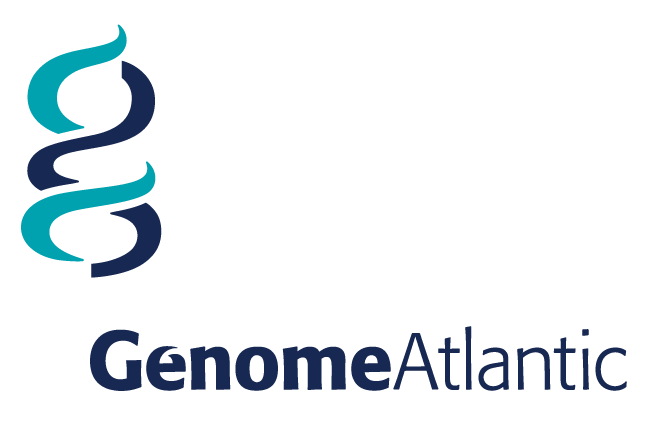FOR IMMEDIATE RELEASE – March 09, 2022
New research approved for Atlantic salmon aquaculture and forestry
Halifax, NS – Two multi-million-dollar research and innovation projects, one to benefit Atlantic Canada’s salmon aquaculture industry and the other to aid the sustainability of the Maritimes’ forestry sector, were announced today by the federal Minister of Innovation, Science and Industry, the Honourable François-Philippe Champagne.
The two ventures were among 10 research initiatives included in the Minister’s announcement of approved projects from the latest competition round of Genome Canada’s Genomic Applications Partnership Program, known as GAPP.
The aquaculture project, to be managed by Genome Atlantic, is a four-year $4.7 million initiative to improve commercial Atlantic salmon broodstock.
The forestry project is a three-year $6.2 million venture to speed up development of new varieties of red and black spruce that can withstand climate change. The tree species are widely used in Eastern Canada’s forest industry. The project will be managed by Génome Québec and supported by Genome Atlantic.
Improving Atlantic salmon broodstock

Salmon aquaculture is a significant food producer and economic contributor in Atlantic Canada, providing the main protein served in at least 232 million meals each year and more than 8,000 jobs. Improvements in the biological performance of salmon grown in waters of Canada’s east coast will also protect animal welfare and bolster the sector’s success in domestic and international markets.
Mowi Canada East, part of the of Mowi ASA group headquartered in Norway, has salmon aquaculture operations in New Brunswick, Newfoundland and Labrador, and Prince Edward Island. The company will be collaborating with the Huntsman Marine Science Centre, St. Andrews, N.B. to map the genomic markers for North American Atlantic salmon that positively influence general fish performance, resistance to sea lice, and tolerance to changing water temperatures. Dean Guest, Freshwater Director for Mowi Canada East will lead the project with academic counterpart, Dr. Amber Garber, Research Scientist at Huntsman Marine Science Centre.
FastTRAC-ing breeding of commercial spruce

The forestry project called FastTRAC2 is the sequel to FastTRAC1 that focused on developing new varieties of Norway spruce and white spruce. The new project will use genetic selection to speed up the participants’ advanced breeding programs for black spruce and red spruce.
Dr. Patrick Lenz, Research Scientist with the Canadian Wood Fibre Centre, part of the Canadian Forest Service at Ste Foy, Québec is co-leading the project with Dr. Jean Bousquet, at Université Laval, Québec City, and with Bruce Stewart, Director of Forestry, Nova Scotia Department of Natural Resources and Renewables. He is overseeing the project for the Maritimes and its implementation in the Nova Scotia Tree Improvement Working Group’s red spruce breeding program. Other project partners include the New Brunswick Department of Natural Resources and Energy Development, the New Brunswick Tree Improvement Council and the Woodlands Division, J.D. Irving Ltd.
Read the Genome Canada release about all GAPP projects announced today: https://bit.ly/3tCIBkJ
-30-
Quotes:
“Genomics research and development plays a pivotal role in improving the lives of Canadians and advancing our post-pandemic economic recovery. Investments, like the one announced today by our government, allow scientists and researchers to take their work beyond the walls of the lab and bring real-world benefits to Canadians in key sectors, including solutions to fight climate change and to keep our industries productive, sustainable and competitive globally.”
– The Honourable François-Philippe Champagne,
Minister of Innovation, Science and Industry
“DNA-based solutions are an important part of the innovation toolkit for many industries in Atlantic Canada, and the demand for these technologies has never been greater. The projects announced today represent custom-fit solutions to significant industry challenges, with the ultimate goal of helping those industries achieve increased and more sustainable production.”
—Britta Fiander, Director of Innovation Programs,
Genome Atlantic, Halifax, N.S.
“We have been working with this specific broodstock since 2010, collecting thousands of data points and fin clips following numerous challenges and assessments, to support a family-based selection program. We are very excited for the opportunity that this project will provide to Mowi Canada East and Huntsman Marine Science Centre to now also select broodstock on an individual basis.”
—Dr. Amber Garber, project co-lead and Research Scientist,
Huntsman Marine Science Centre, St. Andrews, N.B.
“FastTRAC2 is very important for Atlantic Canada and, given that our provincial tree, the red spruce, will be a major focus of the project, it’s especially important to Nova Scotia. Quite possibly this venture is going to make the tree breeding programs in our region the most advanced in the country.” He noted “Nova Scotia is uniquely positioned to partner in this genomic research because of its 50-year-old tree breeding program which has amassed all the necessary test sites and, crucially, a trove of useful data.”
– Bruce Stewart, project co-lead, Director of Forestry,
Nova Scotia Department of Natural Resources and Renewables, Truro, N.S.
For more information contact:
Charmaine Gaudet, APR, Director of Communications, Genome Atlantic
[email protected] | 902-488-7837 (Halifax, N.S.)
Ian Roberts, Director of Communications, Mowi (Scotland, Ireland, Canada)
[email protected] | 506-754-6019 (New Brunswick)
Bruce Stewart, project co-leader, Director of Forestry, Nova Scotia Department of Natural Resources
and [email protected] | 902-956-0462 (Truro, N.S.)
Antoine Gascon, Communications and Public Affairs Specialist, Génome Québec
[email protected] | 514-377-5613








